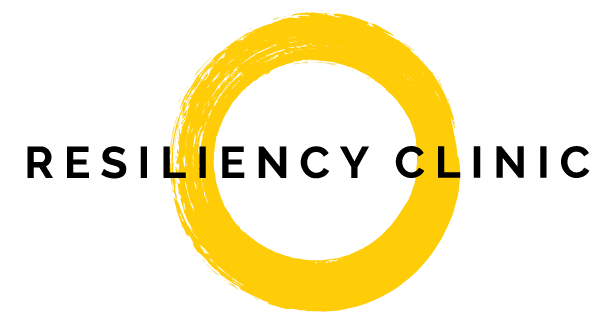A compassionate guide to understanding the emotional journey of infertility and how therapy can help
This post was written by Kaylee Leduc, a Registered Psychotherapist with the College of Registered Psychotherapists of Ontario, who specializes in maternal mental health concerns including infertility struggles, postpartum depression, and anxiety. Kaylee uses an integrative, evidence-based approach drawing from person-centered, cognitive-behavioural, and emotion-focused therapies to help her clients navigate complex reproductive experiences. She brings compassion, empathy, and unconditional positive regard to her work, creating a non-judgmental space where clients feel safe to share their unique stories and heal at their own pace.
Infertility affects one in six couples, yet it remains one of life’s most isolating experiences. Behind the statistics are real people grappling with profound emotional challenges that extend far beyond the physical aspects of conception. As a therapist specializing in fertility struggles, I’ve witnessed the complex web of emotions that accompanies this journey—and I want you to know that every feeling you’re experiencing is valid and normal.
The Emotional Landscape of Infertility
Grief That’s Hard to Name
One of the most challenging aspects of infertility is the grief that doesn’t fit into typical categories. You may find yourself mourning deeply, even when there hasn’t been a specific loss like a miscarriage. This is the grief of the imagined future—the “what could have been” or “what should have been.” You’re grieving the timeline you had planned, the family photos that exist only in your mind, and the milestones that feel increasingly distant.
This type of grief is real and deserves recognition. It’s okay to feel sad about something that hasn’t happened yet, because in many ways, it already existed in your heart and mind.
The Weight of Feeling “Broken”
Many women carry a heavy sense of shame or guilt, accompanied by the persistent thought: “I’m supposed to be able to do this.” When conception doesn’t happen naturally, it can shake your fundamental sense of identity and purpose. These feelings often stem from deeply ingrained beliefs about womanhood and biology, but they don’t reflect your worth or completeness as a person.
The Obsession with Control
When so much feels uncertain, it’s natural to grasp for control wherever possible. This often manifests as hyper-vigilant tracking of cycles, analyzing every bodily sensation, and taking pregnancy tests repeatedly—sometimes multiple times a day. While these behaviors make sense as coping mechanisms, they can also become sources of additional stress and anxiety.
Social and Relational Challenges
The Social Media Minefield
Pregnancy announcements, bump photos, and baby milestones can feel like emotional landmines scattered throughout your daily life. Many of my clients choose to unfollow certain accounts or take breaks from social media altogether—and that’s not only okay, it’s often necessary for emotional protection.
Shifting Friendships
When friends move into parenthood while you remain in limbo, relationships can feel strained. You might feel like you’re watching life from the sidelines or struggle to relate to conversations about morning sickness and nursery decorating. These changes in friendship dynamics are normal, though they add another layer of loss to navigate.
Well-Meaning but Hurtful Comments
“Just relax,” “Try not to stress,” “Have you thought about adoption?”—these comments, while often well-intentioned, can feel invalidating and oversimplified. People may not understand that infertility isn’t solved by relaxation or positive thinking, and their suggestions can inadvertently minimize your experience.
Impact on Intimate Relationships
When Intimacy Becomes Mechanical
One of the most heartbreaking changes many couples experience is the transformation of sexual intimacy from something spontaneous and loving into something scheduled and clinical. This shift can create distance between partners and add performance pressure to what was once a source of connection and joy.
Different Coping Styles
Partners often cope differently—one may want to talk through every detail while the other withdraws or attempts to stay positive. These different approaches can lead to miscommunication and feelings of isolation within the relationship itself.
Carrying the Emotional Load
In many heterosexual relationships, women find themselves managing the majority of the emotional and logistical aspects of the fertility journey. From research and appointments to cycle tracking and supporting everyone else’s emotions, this can feel incredibly lonely and exhausting.
How Therapy Can Provide Support
Creating Space for All Emotions
Therapy offers a unique environment where you can express anger, resentment, jealousy, numbness, or hopelessness without pressure to “stay positive” or move through grief on anyone else’s timeline. All emotions are welcome and valid in this space.
Building Emotional Regulation Tools
Many therapeutic approaches integrate grounding techniques, breathwork, and nervous system regulation strategies to help manage the anxiety, overwhelm, and physical symptoms that often accompany fertility struggles.
Rediscovering Identity Beyond Fertility
Infertility can create a sense of lost purpose or identity, especially when conception becomes all-consuming. Therapy can help you reconnect with your values, interests, and sense of self that exist independently of your fertility journey.
Setting Healthy Boundaries
Learning to identify what feels emotionally safe and supportive is crucial. This might involve limiting social media exposure, having difficult conversations with family members, or creating boundaries around fertility-related discussions.
Strengthening Relationships
When infertility strains partnerships, therapy can support healthier communication patterns, shared grief processing, and rebuilding intimacy—especially when partners are coping in different ways.
Balancing Hope and Reality
Perhaps most importantly, therapy can help you hold space for future possibilities while fully validating the pain and uncertainty of your current experience. This isn’t about toxic positivity or forced optimism—it’s about finding sustainable ways to move forward while honoring where you are today.
You’re Not Alone in This Journey
If you’re navigating infertility, please know that your struggles are real, your emotions are valid, and support is available. The path may not look the way you originally envisioned, but you don’t have to walk it alone.
Kaylee Leduc is a registered therapist who specializes in supporting individuals and couples through fertility challenges, pregnancy loss, and reproductive trauma. She provides compassionate, evidence-based care that honors the complexity of the fertility journey.
If you’re struggling with infertility and would like support, please reach out to schedule a consultation. You deserve compassionate care during this difficult time.






